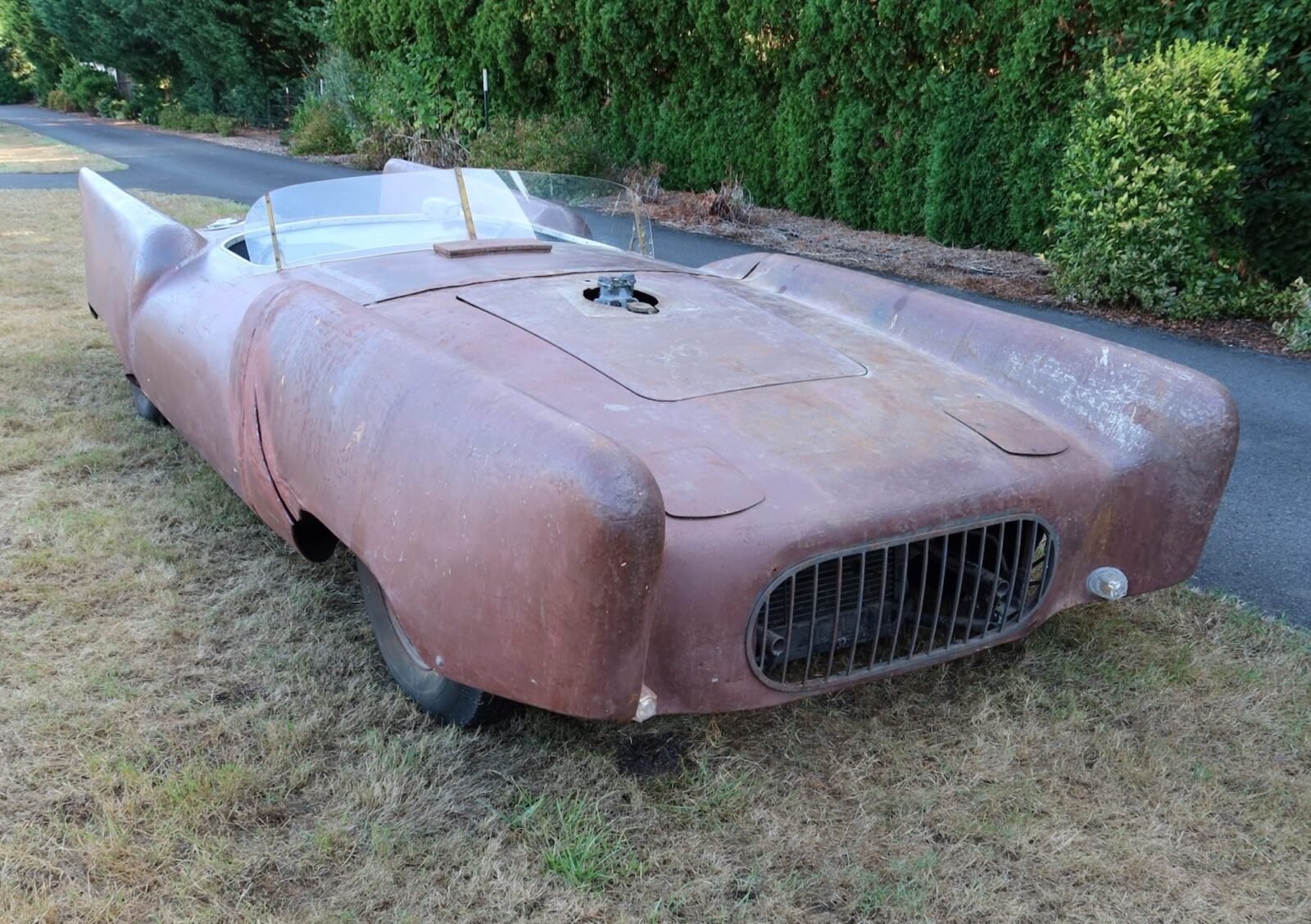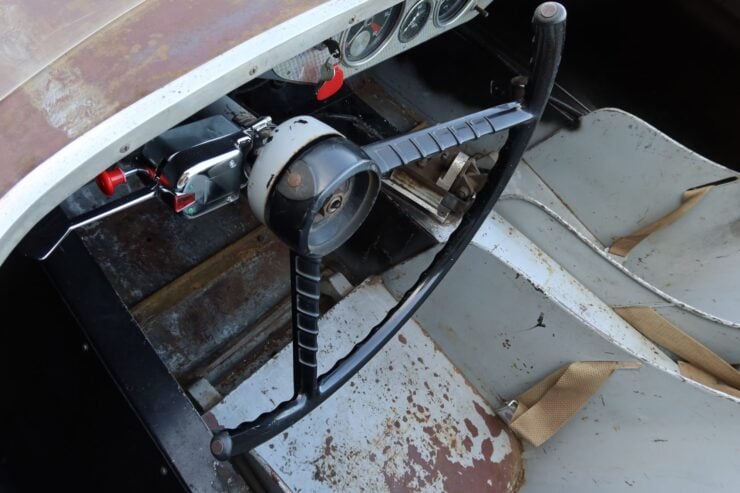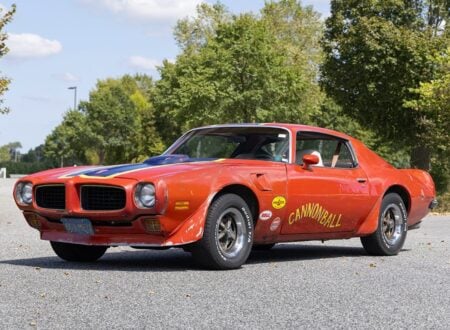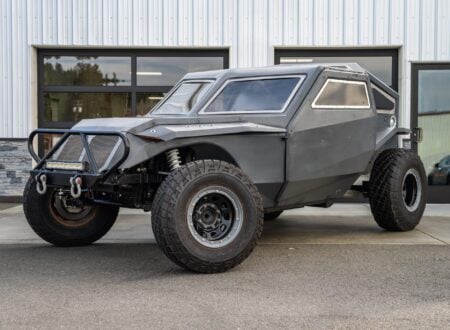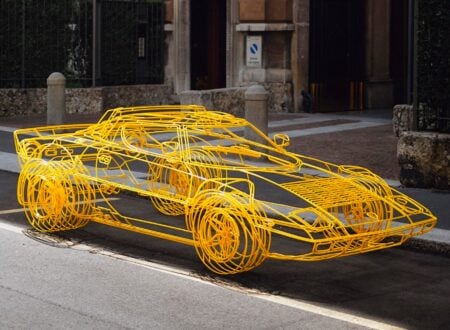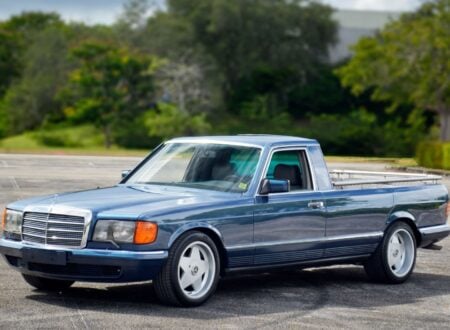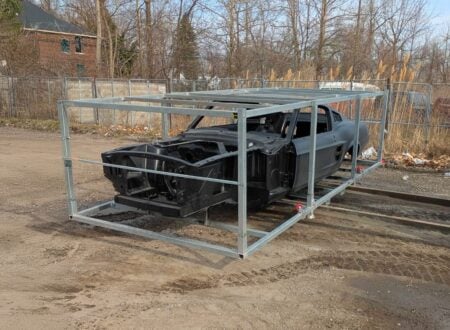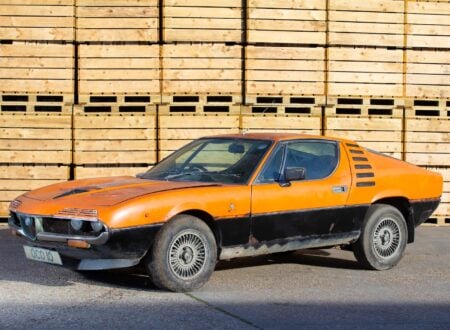This car is titled as a 1964 HMMD, it was built by a metal fabricator named Edgar Smith in the early-1960s, but it’s full history and the detailed story behind it seem lost to history.
The car was placed in storage in 1982 where it would remain for 42 years until it was rescued in 2024 and returned to running condition. If you know more about the car and wouldn’t mind helping us fill the cavernous gaps in its history please get in touch via our contact us page here.
Fast Facts – The 1964 HMMD
- The 1964 HMMD, built by metal fabricator Edgar Smith in the early 1960s, was stored in 1982 and restored in 2024. Its full history is lost, but the car was custom-built using a steel chassis and body, showcasing a 1950s-inspired design with V8 power.
- Smith designed a unique chassis and body, using a 312 cubic inch V8 engine from a 1956 Ford. The hand-fabricated steel body features a clamshell front section for access to the engine, bomber-style seats, and an aircraft-inspired interior with minimalist, bare metal finish throughout.
- The car has no doors, so passengers must step over the sides. Its standout design includes large fins, pop-up headlights operated by a cockpit cable, and an aircraft-like steering yoke. Its design reflects 1950s automotive trends, particularly in custom sports cars and roadsters.
- The car, offered for sale in Vancouver, Washington, needs full restoration to meet Smith’s original vision. It comes with spare parts, historical registration documents, and a Washington title as a 1964 HMMD. The car is running but requires significant work to be road-ready.
The Post-WWII Automotive Renaissance
In the years after WWII there were millions of former servicemen in the United States who had either been trained to operate large vehicles and machines, or trained on maintaining and repairing them. Some have speculated that this enormous wealth of engineering and mechanical talent is the key reason for the post-war explosion in the popularity of custom cars, custom motorcycles, homebuilt racers, and low-volume automakers – oftentimes based out of a suburban garage.
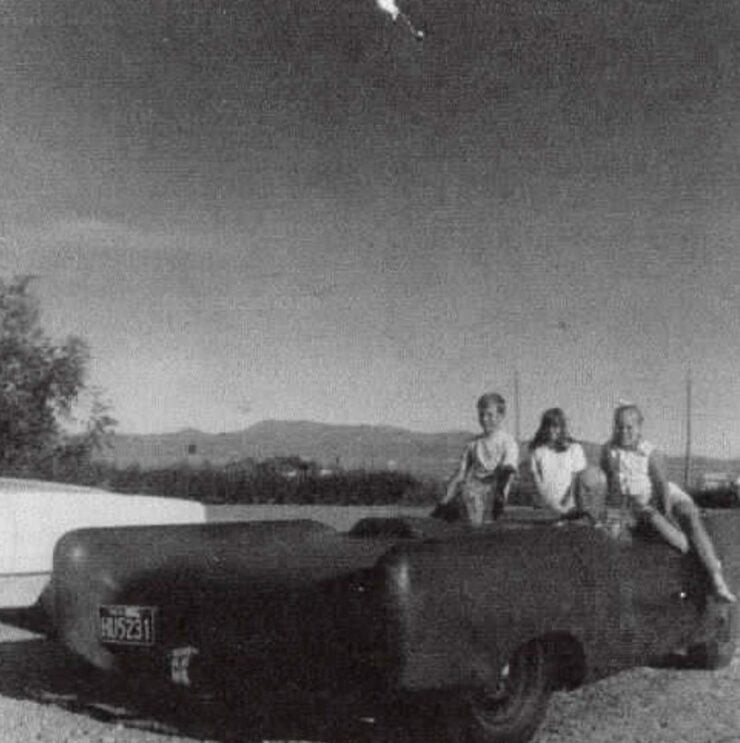

An entire industry was built in the late 1940s and into the 1950s and 1960s and beyond. Many designed their own cars, then used pre-existing production car chassis and drivetrains underneath. Kits were offered in the backs of many motoring magazines, offering enterprising builders the opportunity to build their own European-style sports car right in their own garage.
Some of the larger examples of these companies include Devin, Bocar, Kellison, and Woodill. Almost all used fiberglass bodies due to the low cost, lightweight, and the incredible ease with which complex car body shapes can be made using molds – making it far easier than using steel or aluminum.
All of that said, there were still some who stuck with steel and/or aluminum including many of the original Italian and British coachbuilders who remained skeptical of fiberglass. The key issue with working with steel or aluminum is that it takes far longer to hammer and form metal over a wooden body buck than it does to lay fiberglass cloth in a mold, apply resin, and wait for it to cure.
As a result, metal-bodied cars would take a lot longer to build, and would therefore have a higher cost to the buyer. However, for those with metalworking skills and the desire to build their own car for personal use, with no desire to productionize the design, metal still remained a popular choice.
Edgar Smith And His 1964 HMMD
Sadly we don’t know a whole lot about Edgar Smith, in fact all we know is that he was a metal fabricator with roots in California and Nevada, who set about designing and building his own V8-powered sports car in the early 1960s.
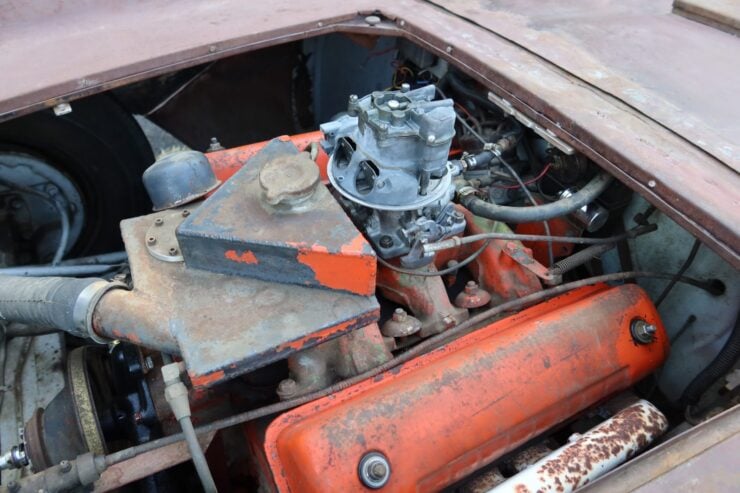

He welded up a tubular steel chassis rather than basing it on a production car chassis, he then designed his own body for the car very much influenced by the 1950s-era trend for sizable fins. The amount of work required to hand-fabricate the entire body from steel must have been significant to say the least.
The car has both a regular hood and a clamshell opening front section offering excellent access to the engine, front suspension, and front brakes.
He chose a 312 cubic inch Y-block V8 from a 1956 Ford, possibly a Ford Thunderbird as they used the same engine, and it was then mated to a 3-speed manual transmission and a Columbia 2-speed rear end, effectively giving the car six forward speeds and two reverses.
Inside the cockpit you’ll find a steering wheel that has been cut into a simple aircraft-like yoke, following on in the aircraft theme are the two bomber-style seats, and the minimalist all metal finish on the floors, transmission tunnel, and sides.
The car has no doors, so the driver and passenger have to step over the sides to get in and out – not uncommon with roadsters from the era. The most prominent design features are those sizable wings or fins front and back, and the use of pop-up headlights that are operated by a cable from the cockpit.
The car is now being offered for sale in running condition but it’s clear it needs a full restoration to get it back on the road, and to meet Edgar Smith’s original vision for the car.
It’s being offered out of Vancouver, Washington on Bring a Trailer and you can visit the listing here. It comes with spare parts, historical registration documents, and a Washington title in the seller’s name listing it as a 1964 HMMD.
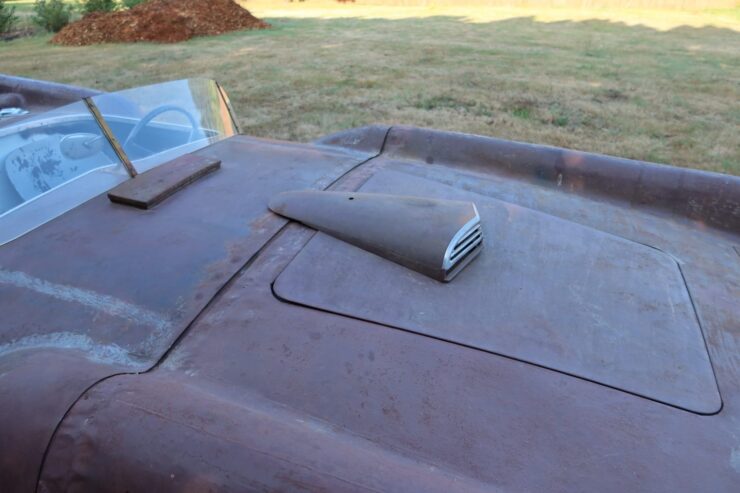
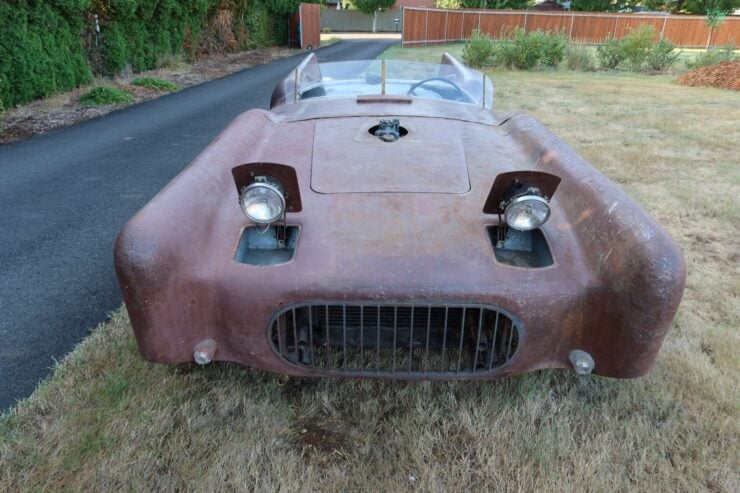
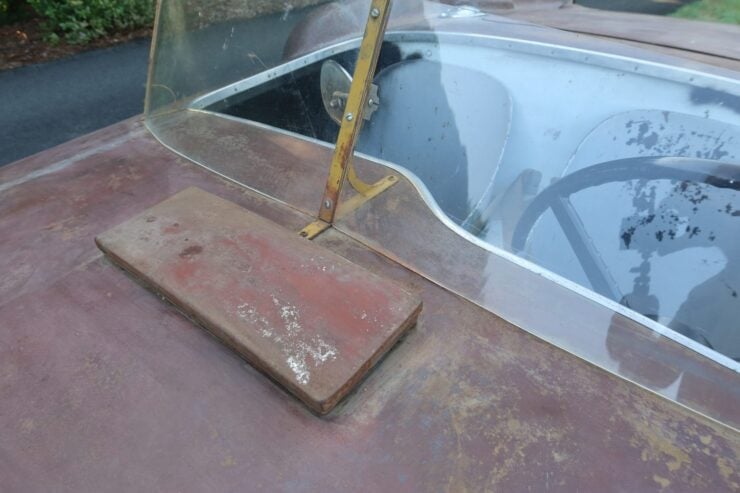
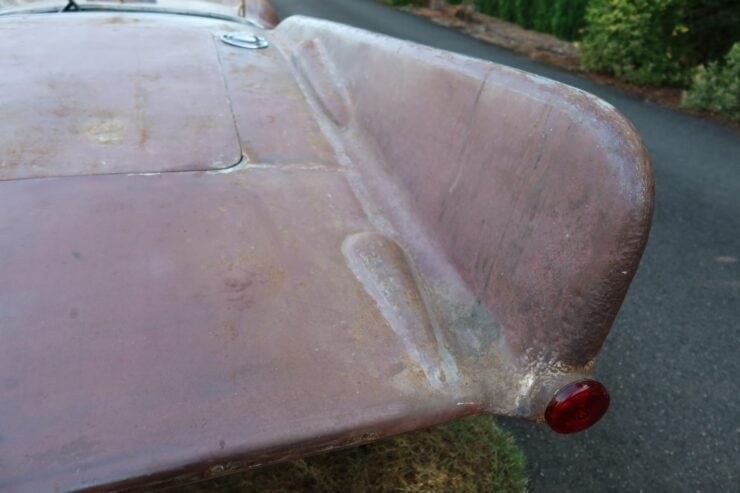
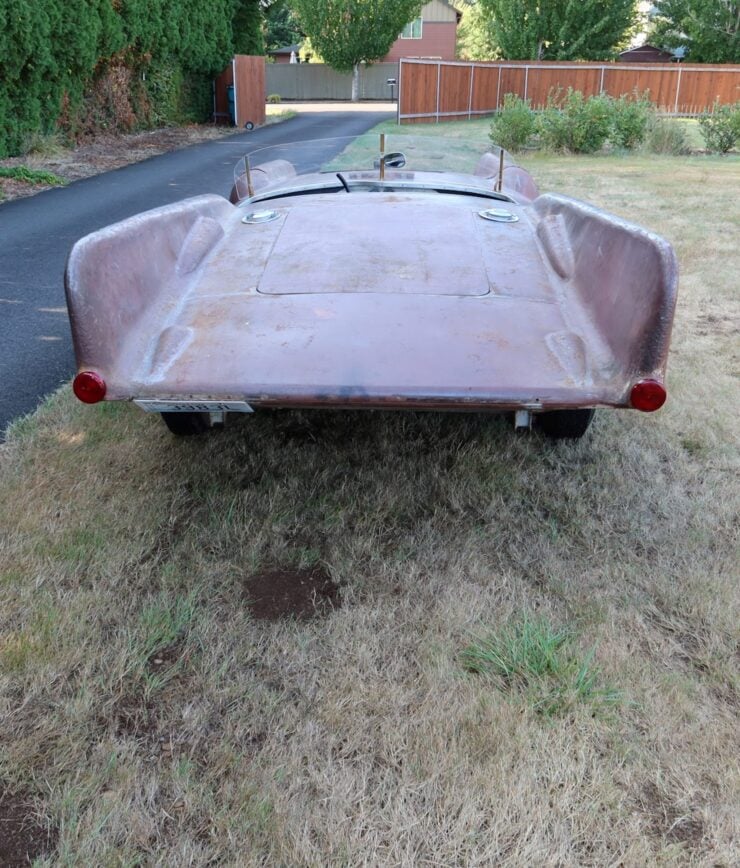
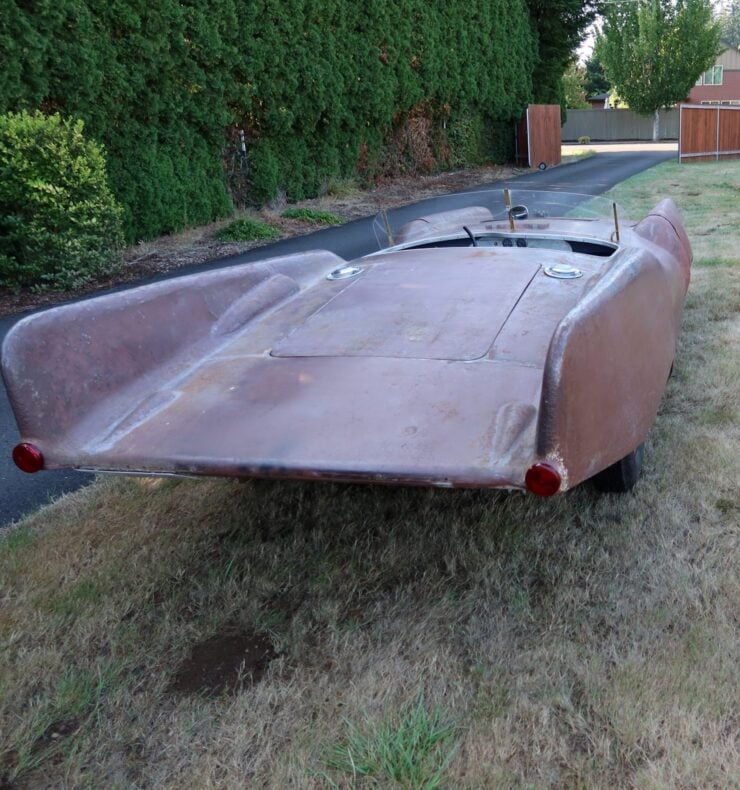
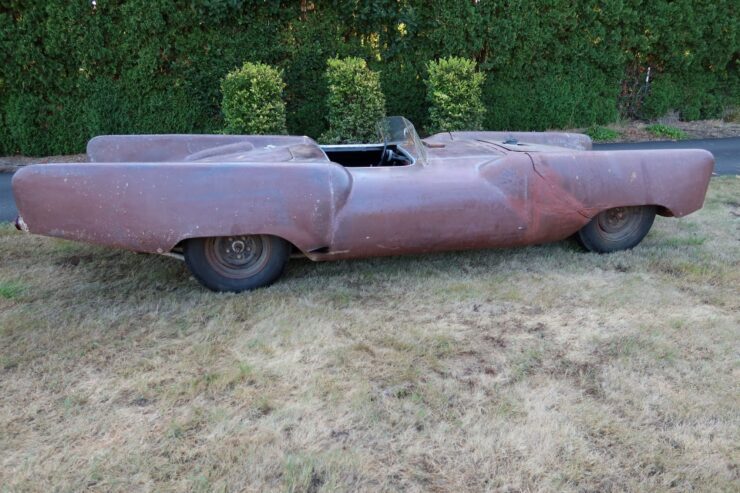
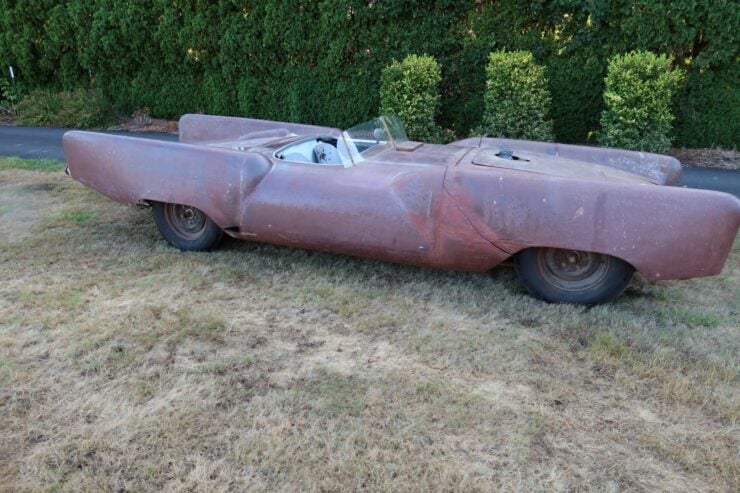
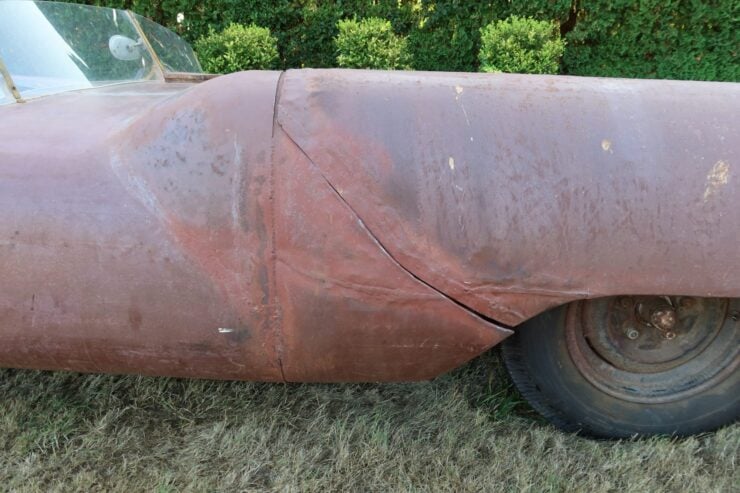
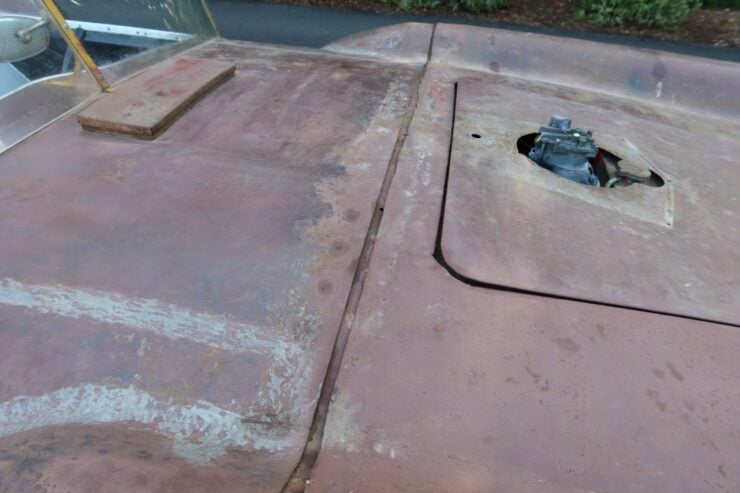
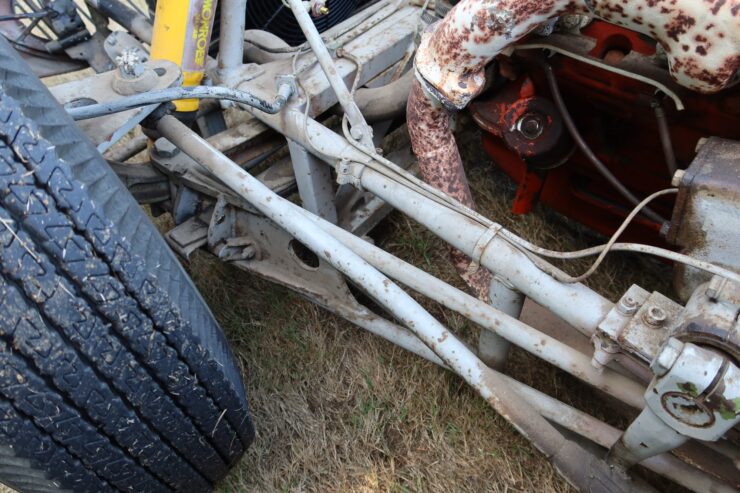
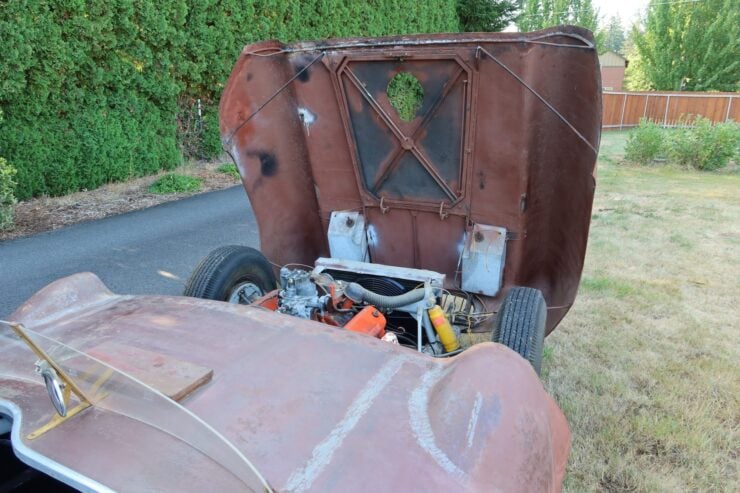
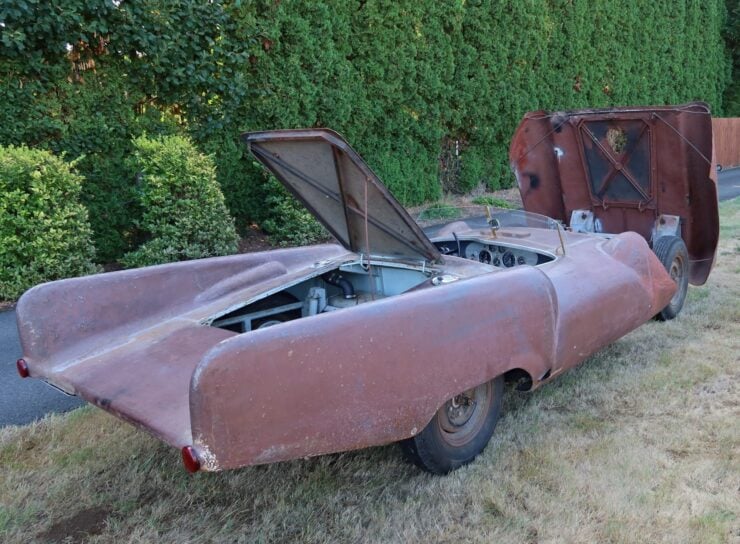
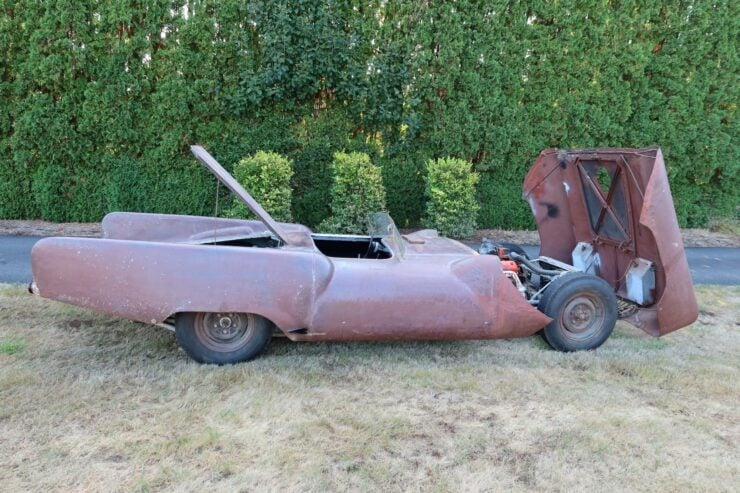
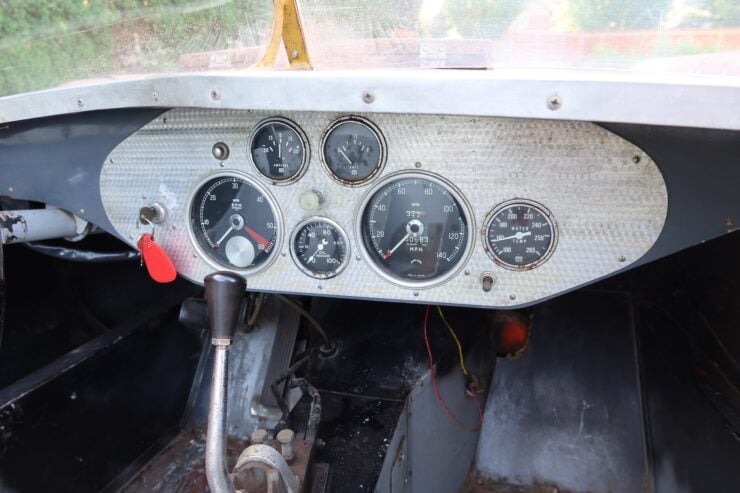
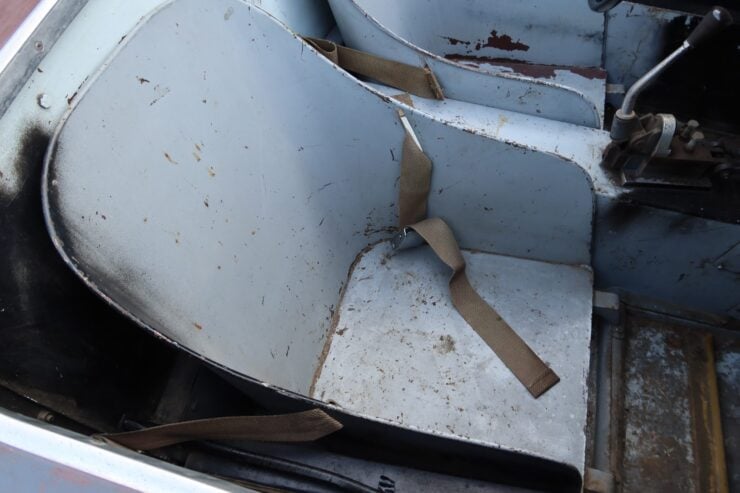
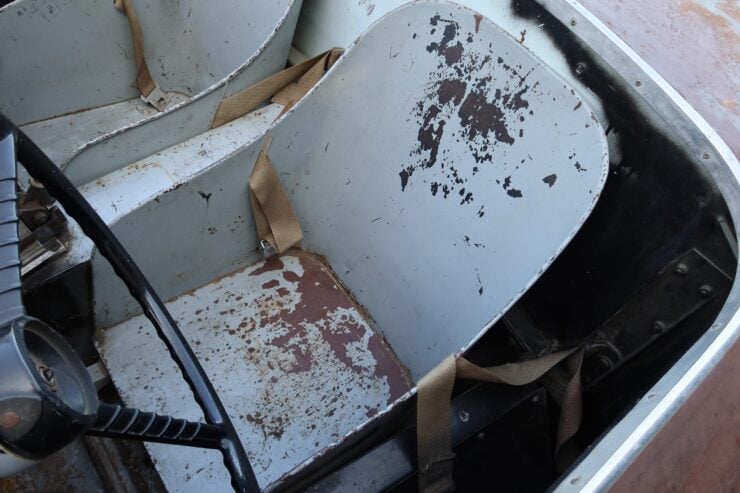
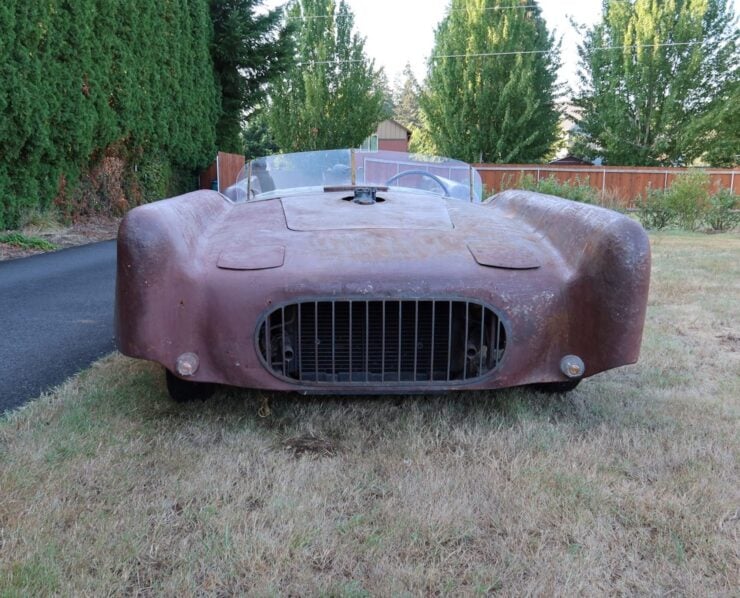
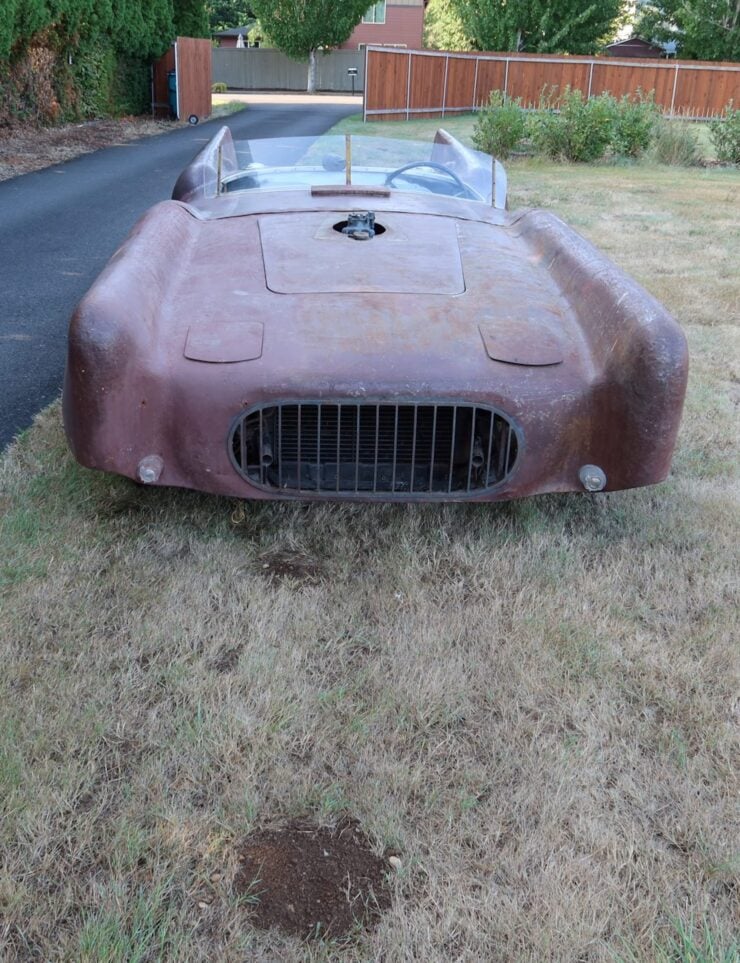
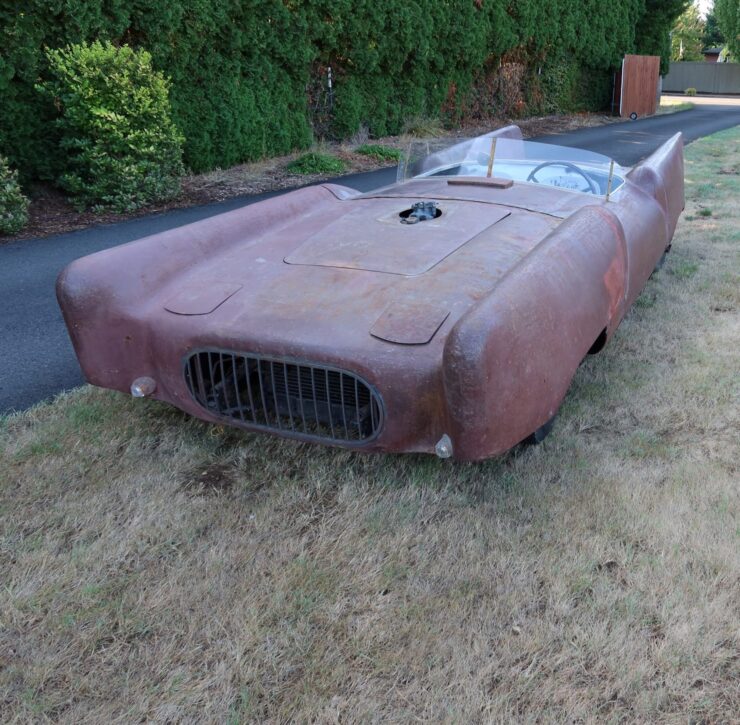
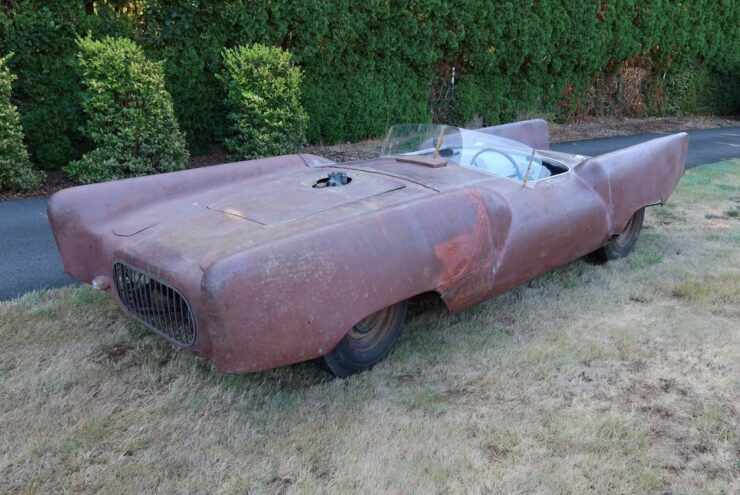
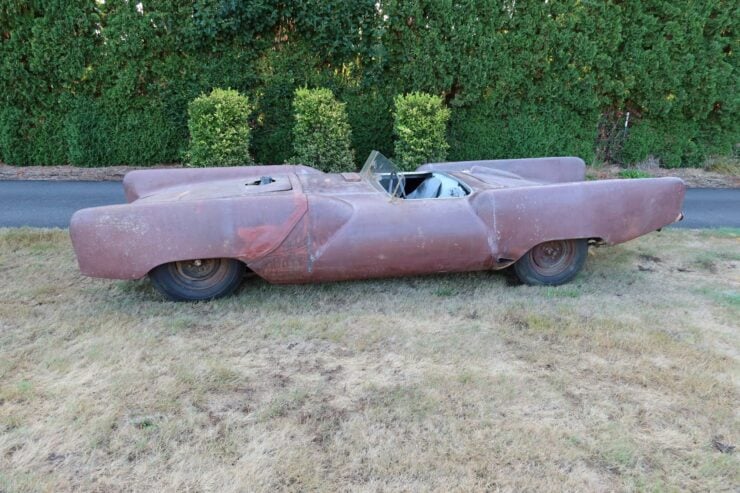
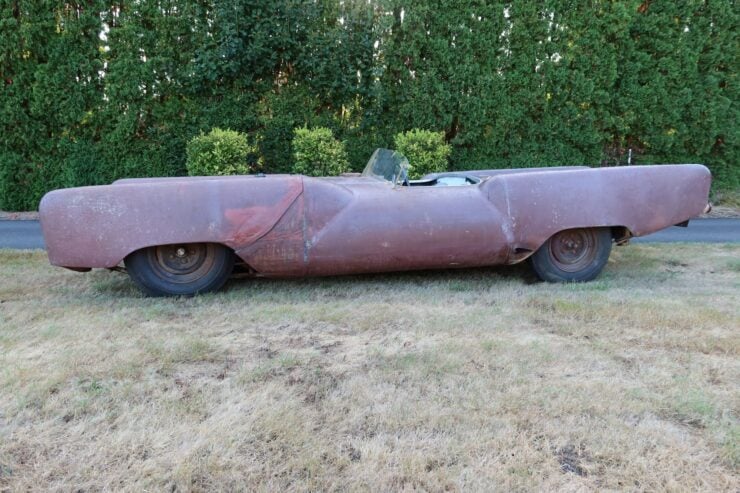
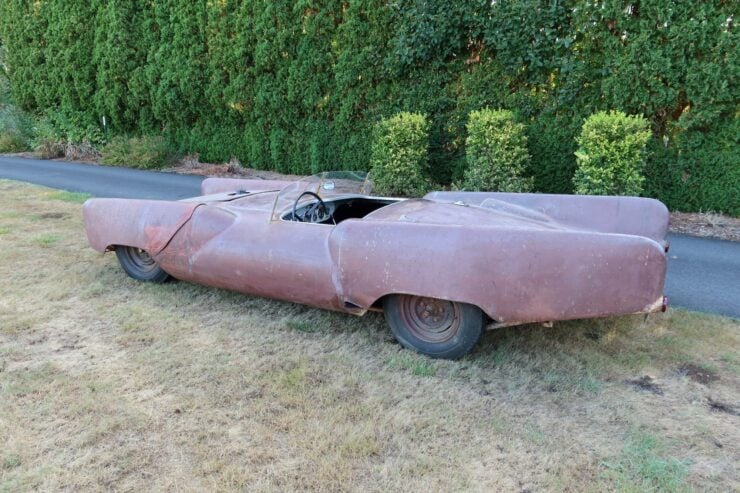
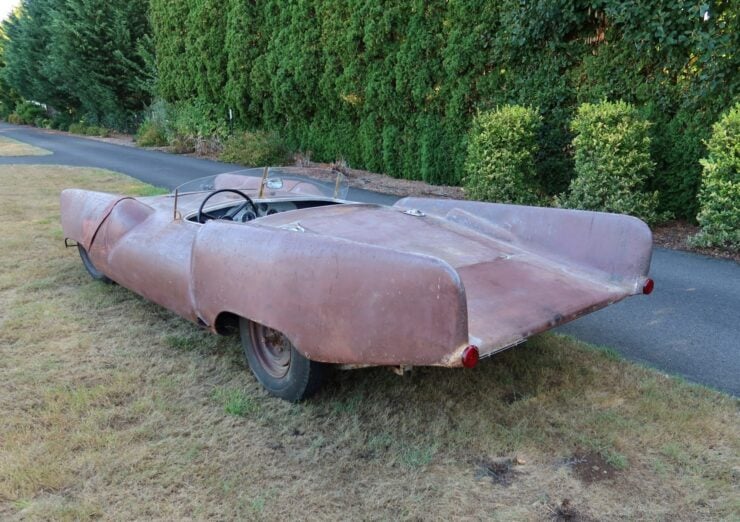
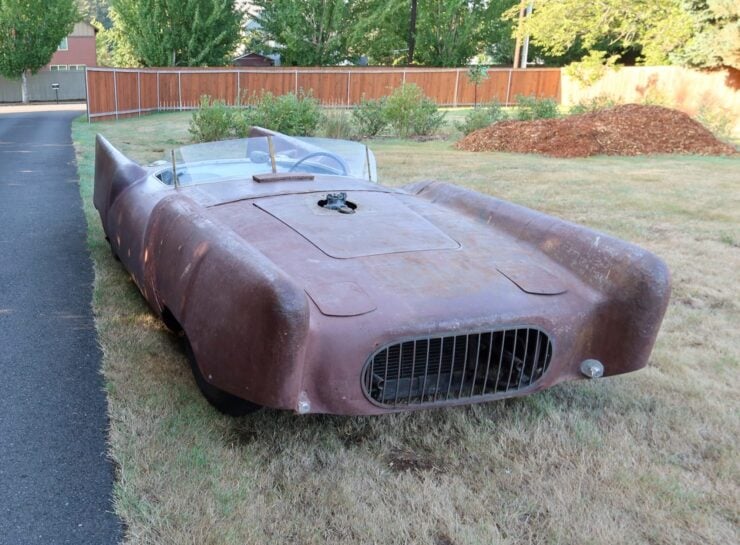
Images courtesy of Bring a Trailer

